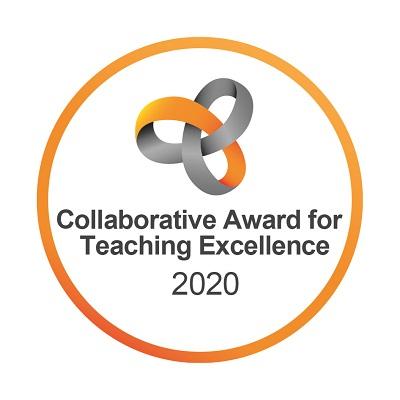IUCN/SSC CTSG HWIWG Hidden costs and gender issues in conservation translocations Thursday 12th May
Adriana Consorte-McCrea
Reminder
IUCN/SSC Conservation Translocation Specialist Group- Human-Wildlife Interactions Working Group
Thursday the 12th of May 2022, 2-3.30pm (UK time)
Hidden costs and gender issues in reintroductions and translocations of wildlife: a case study from India
Dear colleagues
Please join our first 2022 discussion session, which will take place online on the 12th of May (Microsoft Teams platform). This will be a slightly longer session as the new core members will take this opportunity to introduce themselves.
We are very pleased to invite you to share your experiences regarding inequalities in roles and treatment of man and women faced during conservation translocation programmes. Gendered related issues may be culturally ingrained and affect conservation translocations, as it affects other conservation practices. Women may be more directly in contact with reintroduced species, and yet have fewer opportunities to have their voices heard. We invited Dr Upma Manral and Dr Kalli Doubleday to introduce insights from their research in India, and to lead a follow up discussion on gendered issues in the context of conservation translocations.
Dr Upma Manral is working as a Project Scientist at the Wildlife Institute of India. She is part of a team working in two Protected Area landscapes of Ladakh, in recognizing the High Conservation Value areas for the biodiversity and people there, and in developing effective management practices. She says: “ Through this talk, I will to implore the gendered facets of wildlife management in various landscapes in India. I list some of the reasons we might have to wear gender lens when making decisions relating to wildlife conservation and management, including wildlife translocation whether for conflict mitigation or restocking depleted populations. I share my experience of working with hill communities in Western Himalaya and share stories from different landscapes of India, listing some of the experiences of people who have been part of translocation programs/ projects and exploring the connection between social issues and wildlife conflict in India. I draw attention of policy makers, practitioners and scientific community towards acknowledging women’ role in wildlife management including translocation, and encouraging their participation in decision making to achieve sustainable development and wildlife conservation in the developing world.”
Kalli F. Doubleday, Ph.D. is a Research Fellow at The University of Texas, Austin. Kalli explores the human dimensions of human-wildlife interactions and rewilding initiatives. She says: “This quick overview will touch on research from Sariska Tiger Reserve, Rajasthan, India and will briefly cover results including: (1) gender-based violence is a hidden cost of women working in and around Sariska and the reintroduced tigers, a hidden cost of human–wildlife conflict otherwise unnoted in the literature, (2) this hidden cost is not solely the product of human–wildlife encounters but in large part a consequence of the highly patriarchal society that dictates gendered human–environmental relations. This body of work seeks to inform developing debates around gender-based violence in relation to environmental change, human dimensions of apex predator conservation, and sustainable rural livelihoods in and adjacent to protected areas.”
Please find further information attached. You may join us on the day by using the link below. So, please save the date!
Microsoft Teams meeting
Join on your computer or mobile app
Click here to join the meeting
Please note that our recently published guidelines can be found here, open access:
Consorte-McCrea A, Kolipaka S, Owens JR, Ruiz-Miranda CR and Waters S (2022) Guidelines to Facilitate Human-Wildlife Interactions in Conservation Translocations. Front. Conserv. Sci. 3:788520. https://doi.org/10.3389/fcosc.2022.788520
A recording of the workshop ‘Facilitating Human-Wildlife Interactions in Conservation Translocations’ (30th International Congress for Conservation Biology, ICCB December 2021, Kigali, Rwanda) can be found here (in two parts):
Facilitating Human-Wildlife Interactions in Conservation Translocations Part1 Facilitating Human-Wildlife Interactions in Conservation Translocations Part1 - YouTube
Facilitating Human-Wildlife Interactions in Conservation Translocations Part2 Facilitating Human-Wildlife Interactions in Conservation Translocations Part2 - YouTube
The Special issue of the Frontiers in Conservation Sciences, Animal Section "Human Dimensions of Animal Translocations"2022 is also out now, open access via link, with a series of papers that are of interest to our community. Some papers are still going through the editorial process to complete the issue.
Our website is up and running, so please visit for information and resources https://iucn-ctsg-hwi.wixsite.com/workinggroup. You may also join us at https://www.facebook.com/IUCN-CTSG Human-Wildlife Interactions to share news, events, your opinion, notes of interest and photos! Group resources can also be found in Researchgate https://www.researchgate.net/project/IUCN-SSC-RSG-Human-and-Wildlife-Interaction
If you are new to the group or have questions, suggestions or would like to contact us, please send an email to adriana.con...@canterbury.ac.uk, and I’ll be happy to respond.
Very best wishes
Adriana and team
Dr. Adriana Consorte-McCrea
Education for Sustainability Lead
Academy for Sustainable Futures
Sustainability Office
Canterbury Christ Church University
North Holmes Road
Canterbury CT1 1QU

IUCN SSC/Conservation Translocation Specialist Group,
Chair of the Human-Wildlife Interactions Working Group
Fg10, tel: +44 1227 767700 Ext:1607
adriana.con...@canterbury.ac.uk
https://www.researchgate.net/profile/Adriana_Consorte-Mccrea
http://www.linkedin.com/profile/edit?trk=hb_tab_pro_top
http://adrianaconsortemccrea.wordpress.com/
https://iucn-ctsg-hwi.wixsite.com/workinggroup
Human Dimensions of Animal Translocations in Frontiers in Conservation Science.
Find Consorte-McCrea A, Kolipaka S, Owens JR, Ruiz-Miranda CR and Waters S (2022) Guidelines to Facilitate Human-Wildlife Interactions in Conservation Translocations. Front. Conserv. Sci. 3:788520. doi: 10.3389/fcosc.2022.788520 Frontiers | Guidelines to Facilitate Human-Wildlife Interactions in Conservation Translocations | Conservation Science (frontiersin.org)
Find Consorte-McCrea, A., Fernandez, A., Bainbridge, A., Moss, A., Prévot, A-C., Clayton, S., Glikman, J.A., Johansson, M., López-Bao, J.V., Bath, A., Frank, B. and Marchini, S. (2019). Nature Conservation, Pensoft. DOI 10.3897/natureconservation.37.39501 "Large carnivores and zoos as catalysts for engaging the public in the protection of biodiversity”
Find Consorte-McCrea, A., Bainbridge, A., Fernandez, A., Nigbur, D., McDonnell, S., Grent, O., Morin, A., (2017).Understanding attitudes towards native wildlife and biodiversity in the UK: the role of zoos. In Sustainable Development Research at Universities in the United Kingdom, ch 17. Ed. Walter Leal Filho. World Sustainability Series, Springer International. DOI 10.1007/978-3-319-47883-8_17 http://link.springer.com/chapter/10.1007%2F978-3-319-47883-8_17
Find the book The Ecology and Conservation of the maned wolf: multidisplinary perspectives, edited by Adriana Consorte-McCrea and Eliana Ferraz Santos, 2014. CRC Press, London, here:http://www.crcpress.com/product/isbn/9781466512597



